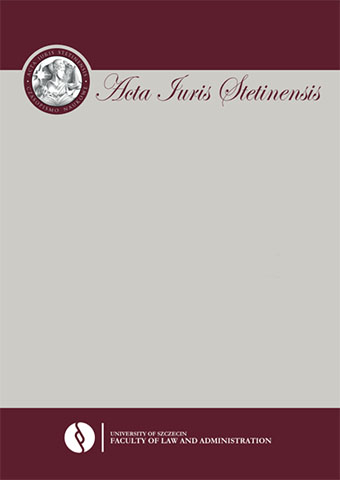






| Authors: |
Jacek
Giezek
Wydział Prawa, Administracji i Ekonomii Uniwersytetu Wrocławskiego |
| Keywords: | perpetrator consciousness reconstruction of perpetrator’s consciousness diagnosis predictions dynamics of consciousness subjective attribution objective attribution |
| Data publikacji całości: | 2018 |
| Page range: | 23 (45-67) |
| Downloads ?: | 761 |
| 1. | Ajdukiewicz K., Subiektywność i niepowtarzalność metody bezpośredniego doświadczenia, w: Język i poznanie, t. II, Warszawa 1985. |
| 2. | Boudon R., L`analyse mathematique des Fitas sociaux, Paris 1967. |
| 3. | Carnap R., Wprowadzenie do filozofii nauki, Warszawa 2000. |
| 4. | Czerwiński Z., Dylematy ekonomiczne, Warszawa 1992. |
| 5. | Giezek J., Deformacje spostrzegania jako przyczyna przestępstw nieumyślnych, „Nowe Prawo” 1990, nr 4–5. |
| 6. | Giezek J., Kardas P., O kryteriach obiektywnego oraz subiektywnego przypisania z punktu widzenia podstaw odpowiedzialności karnej – uwagi wprowadzające, w: Obiektywne oraz subiektywne przypisanie odpowiedzialności karnej, red. J. Giezek, P. Kardas, Warszawa 2016. |
| 7. | Giezek J., Przyczynowość oraz przypisanie skutku w prawie karnym, Wrocław 1994. |
| 8. | Giezek J., Strona podmiotowa czynu zabronionego a model i kryteria subiektywnego przypisania, w: Obiektywne oraz subiektywne przypisanie odpowiedzialności karnej, red. J. Giezek, P. Kardas, Warszawa 2016. |
| 9. | Giezek J., Świadomość sprawcy czynu zabronionego, Wrocław 2013. |
| 10. | Kapusta A., Problem intersubiektywności w świetle współczesnej neurokognitywistyki: od neuronów lustrzanych po narrację, w: „Studia Philosophiae Christianae” 2008, nr 2. |
| 11. | Kozielecki J., Koncepcje psychologiczne człowieka, wyd. X, Warszawa 2000. |
| 12. | Majewski J., Określenie umyślności w projekcie kodeksu karnego na tle obowiązujących przepisów, „Wojskowy Przegląd Prawniczy” 1996, nr 1. |
| 13. | Pohl Ł., Błąd co do okoliczności stanowiącej znamię czynu zabronionego w polskim prawie karnym (zagadnienia ogólne), Poznań 2013. |
| 14. | Wolter W., Funkcja błędu w prawie karnym, Warszawa 1965. |
| 15. | Zaborowski Z., Teoria treści i form samoświadomości, Warszawa 2000. |